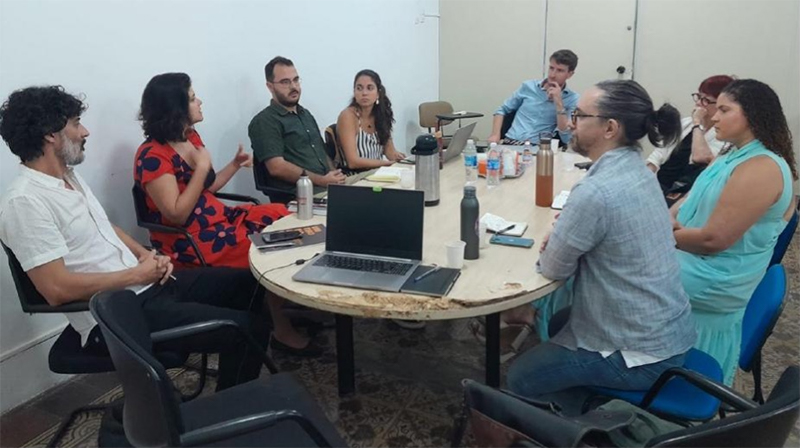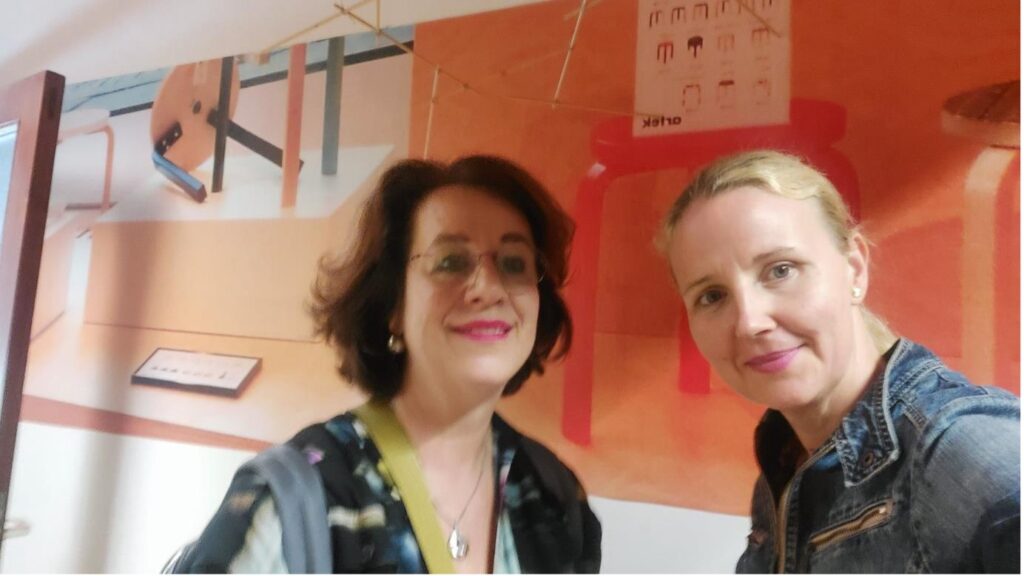Grants
How to obtain a GLITSS Grant
GLITSS COST Action networking activities organised through a Grant Awarding Process encompass the mobility of researchers and innovators and presentations at conferences organised by third parties. Find out more about the grant awarding process and how to get your grant results published in this video.
Upcoming calls for grants will be published on this website when available
Interested in applying for a GLITSS Grant?
In your 6th call for grants, which is open until the 30th of June 2024, we especially encourage Young Researchers from Inclusiveness Target Countries (ITC) to apply for ITC Conference grants.
To learn more about the different types of grants that GLITSS offers, have a look at the next section and apply for a grant using the button below.
What grants do we offer?
Short-Term Scientific Missions consist of a visit to a host organisation located in a different country than the country of affiliation of the researcher or innovator for specific work to be carried out and over a determined period of time.
Short-Term Scientific Missions benefit the:
- STSM Grantee: receives funding for implementing a project with an international team and gains new knowledge or access to equipment or techniques not available in the home institution;
- STSM Host: receives an international partner in their institution and can develop long-lasting collaboration.
Virtual Mobility consists of collaboration in a virtual setting among researchers or innovators within the COST Action to exchange knowledge, learn new techniques, etc.
Virtual Mobilities benefit the:
- COST Action: uses a flexible tool to implement virtual activities inside the network, achieve the MoU objectives and significantly increase their impact and reach. Contributes to European leadership in knowledge creation and increasing its innovation potential;
- VM grantee: develop(s) capacity in virtual collaboration and networking in a pan-European framework.
Examples of activities that can be performed by the VM grantee are:
- Virtual mentoring scheme, with a special focus on activities and exchanges that can generate capacity building and new skills, particularly for Young Researchers and Innovators (e.g. managerial skills, methodological skills, communication skills, etc);
- To support the harmonisation and standardisation of methods and procedures within the Action networking activities, e.g.
○ setting up a survey amongst all Action members to collect different results and outcomes from experiments done in their respective labs and research groups;
○ coordinating the discussions to create common protocols to be used by the network afterwards;
○ preparing questionnaires and response scales to be used by the Action members as part of virtual networking activities. - To support the implementation of research coordination related activities that do not necessarily require inperson presence, e.g.
○ computational or modelling activities;
○ data analysis of the Action for a specific report or activity.
ITC Conferences consist of a presentation of the own work given by a Young Researcher and Innovator affiliated with an Inclusiveness Target Country / Near Neighbour Country for their participation in high-level conferences fully organised by a third party, i.e. not organised nor co-organized by the COST Action.
ITC Conferences benefit the:
- ITC Conference Grantee: receives support for attending and presenting their work (poster/oral presentation) at a conference and can establish new contacts for future collaborations.
ITC Conferences:
- Serve the COST Excellence and Inclusiveness Policy;
- Support Young Researchers and Innovators affiliated with a legal entity in an Inclusiveness Target Country/ Near Neighbour Country to establish a strong network and increase their visibility in the research community by sharing their work and gaining knowledge;
- Can contribute to increasing the visibility of the Action.
Criteria for being considered as a Young Researcher from an ITC Country:
According to the COST Association, young researchers are researchers under the age of 40, with the ITC country criteria applying to the following countries: Albania, Armenia, Bosnia and Herzegovina, Bulgaria, Cyprus, Czech Republic, Estonia, Croatia, Georgia, Greece, Hungary, Lithuania, Latvia, Malta, Moldova, Montenegro, Poland, Portugal, Romania, Slovenia, Slovakia, Republic of North Macedonia, Republic of Serbia, Türkiye and Ukraine.
Dissemination Conferences consist of an oral presentation by an Action Participant of the work of the Action in high-level conferences fully organised by a third party, i.e. not organised nor co-organized by the COST Action.
Dissemination Conferences benefit the:
- Dissemination Conference Grantee: receives support for attending and delivering an oral presentation of the Action, their activities, and results at a conference and for developing new contacts and potential future collaborations;
- COST Action: receives increased visibility and awareness, new contacts with potential
stakeholders
Dissemination Conferences:
- Significantly increase the visibility of the Action in the research community and can contribute to increasing the visibility of the presenter;
- Attract additional participants and stakeholders and disseminate Action results to relevant end-users at high-profile conferences in the field on a topic relevant to the Action.
We kindly request you to include the GLITSS, COST and EU logo in your presentation or other publicity material if you use that in your activity.
Example stories of previous grant recipients

Short-Term Scientific Mission: The Application of “Alternative Development” Principles Applied in Brazilian Urban Settings.
Recipient: John Collins
John Collins visited Brazil from 18 to 24 September 2023 where he met with many researchers and policy-makers in the area of drug policy, organised crime and security. Discussions were held on various topics such as the dynamics of urban drug markets and policing in Brazil and its impact on communities. In the framework of his research John visited key places of interest such as the region’s largest illegal market, in Sao Paulo where he met with local vendors and observed the daily police operation to clear and close the market.

Short-Term Scientific Mission: Understanding Illicit Trade in the Wood Industry
Grant Recipient: Andreja Pirc Barcic
Andreja Pirc Barcic visited the Department of Wood Science and Technology at Biotechnical Faculty University of Ljubljana from 4 to 9 September 2023. In the framework of her STSM she collaborated with Professor Leon Oblak to develop a questionnaire about the illicit wood products trade and its impact to safety and security in the wood-based sector. The questionnaire was distributed to three institutions, namely the Ministry of Agriculture, Forestry and Food, the Slovenia Forestry Institute and Slovenia Wood Cluster as well as to ten wood industry companies. The STSM was also used as an opportunity to visit multiple sectors in Ljubljana and Maribor.
Short-Term Scientific Mission: Overcoming barriers to the effective investigation and prosecution of Illicit Trade and drug trafficking in the United Kingdom and Albania. A comparative analysis.
Grant Recipient: Laurena Kalaja
During her STSM at Durham Law School, Durham University, Laurena Kalaja worked under the guidance of Associate Prof. Gemma Davies In that period she utilised resources from the University’s library, participated in a workshop with various lawyers and criminologists and engaged in various fruitful discussions with academics from the University. Additionally, several lectures on the same topic as the STSM were attended in the second week, providing opportunities to discuss the goals and missions of the Cost Action initiative.
Overall, the STSM proved to be a valuable experience, enabling Laurena Kalaja to delve into the subject matter, establish collaborative connections, and contribute meaningfully to the objectives of the Cost Action.
